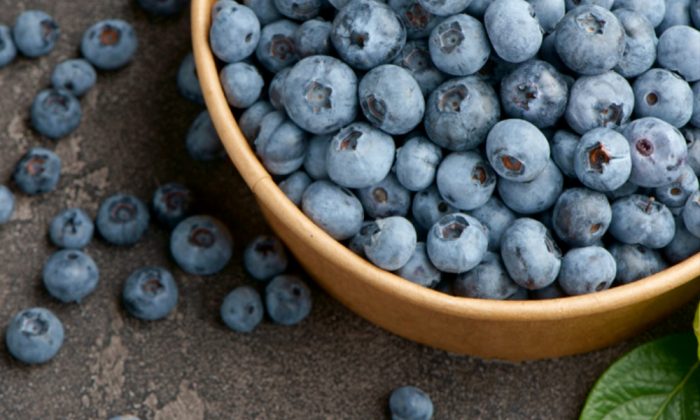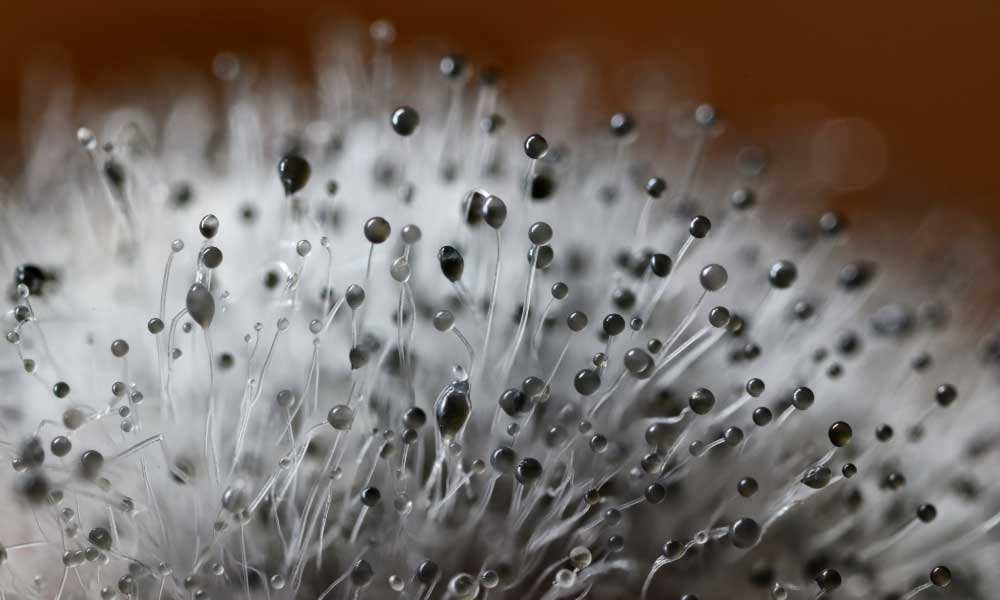
Fun fact: Blueberries have a natural waxy coating called a bloom. This bloom acts as a barrier to protect blueberries from insects and other bacteria.
Blueberries are a member of the Ericaceae family which also includes cranberries and bilberries.
Nutrition
- Blueberries are an excellent source of vitamin K and manganese, and a good source of vitamin C and fiber.
- Vitamin K assists in blood clotting and works with calcium to build strong bones.
- Manganese is important for normal brain and nerve function and plays a role in blood sugar regulation and calcium absorption.
- Vitamin C aids in the absorption of iron, plays a role in wound healing and helps the immune system by protecting the body against disease.
- Fiber aids in digestion by helping to prevent constipation while it also adds bulk to your diet to make you feel fuller faster which can help with weight control.
- Blueberries also contain the phytonutrient anthocyanins. Phytonutrients, also known as phytochemicals, are substances in plants that have beneficial health effects. Research suggests fruits and vegetables containing anthocyanins may play a role in reducing the risk of cardiovascular disease, cognitive decline, and cancer.
- Blueberries are naturally low in calories, fat, and sodium.
How to Purchase, Prepare, and Store
- Blueberries are available fresh, frozen, or dried.
- Purchase fresh blueberries that are firm, smooth skinned, plump, and deep purple-blue or blue-black colored.
- Berry size in not an indicator of maturity but the color is. If you purchase blueberries that are reddish in color, use them in cooking.
- Avoid blueberries that look soft, shriveled, or have any signs of mold.
- Refrigerate fresh blueberries and wash prior to eating.
- To freeze blueberries:
- Place them directly in the freezer in their original package in a resealable plastic bag and freeze. Rinse prior to eating.
- Or rinse blueberries first and let dry completely on paper towels. Place in a resealable plastic bag or other freezer safe container and freeze. Blueberries will freeze separately so you can remove the portion you need.
- Blueberries can also be canned. Various methods exist for canning. Visit the USDA website to learn safe canning techniques.
Nutrition Facts
1 cup fresh blueberries
- Calories: 84
- Protein: 1.10 g
- Fat: 0.49 g
- Carbohydrate: 21.45 g
- Fiber: 3.6 g
- Sugars: 14.7 g
- Calcium: 9 mg
- Magnesium: 9 mg
- Potassium: 114 mg
- Vitamin C: 14.4 mg
- Folate: 9 µg
- Vitamin A: 80 IU
- Vitamin K: 28.6 µg
Source: fdc.nal.usda.gov
Recipes
Request an Appointment
